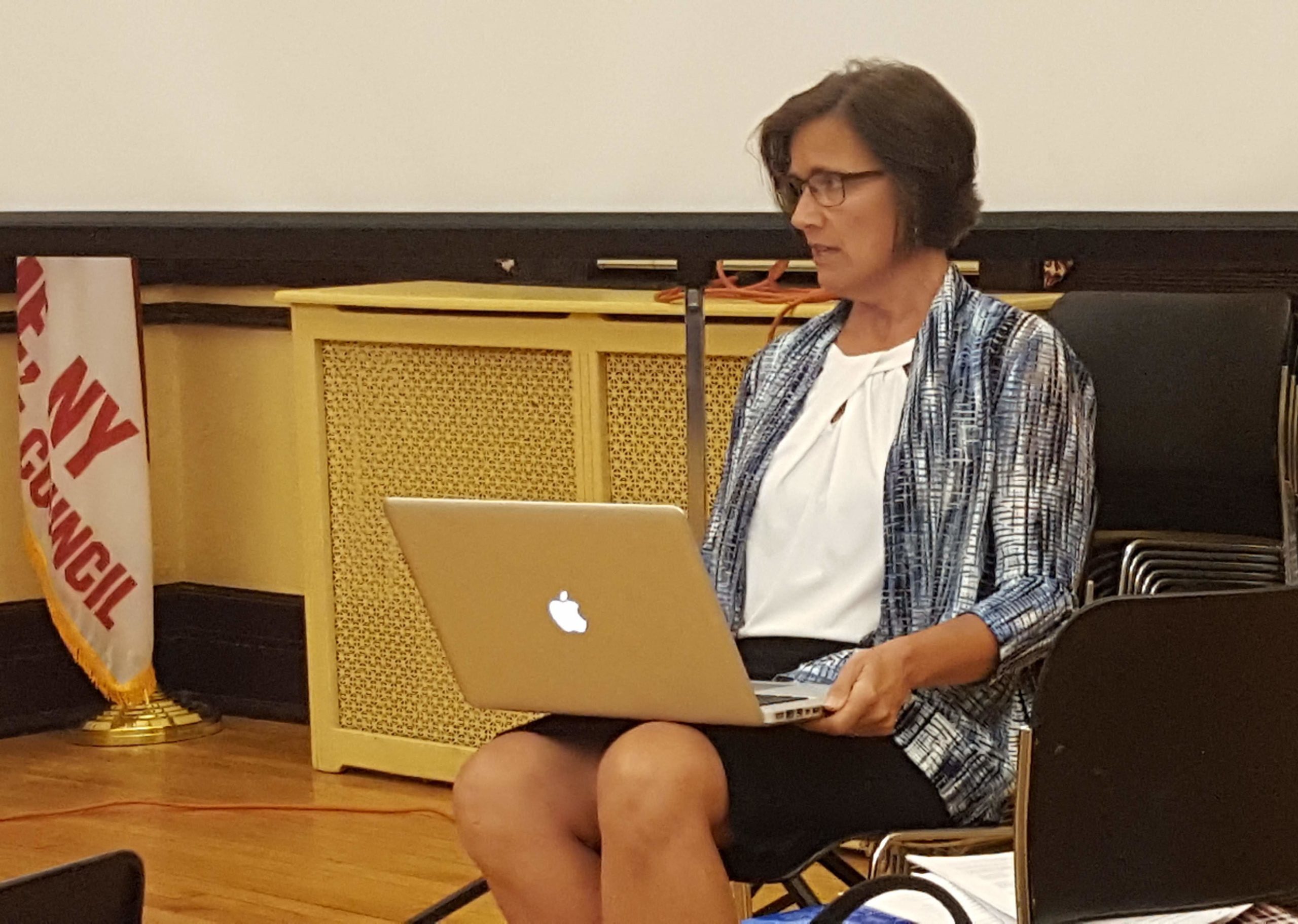An entity has approached the Village of Plandome with an idea for a macro cell facility in the midst of ongoing reviews of an ExteNet Systems application for 10 cell nodes, a CityScape Consultants representative said at Monday’s Board of Trustees meeting.
Mayor Thomas Minutillo declined to elaborate on the matter both during and after the meeting, but said that the board would hold a separate meeting about it on Wednesday.
The board had hired CityScape Consultants, which specialize in wireless communications, to review the ExteNet application that has caused an uproar among residents. Macro towers provide service to wider geographical areas than cell nodes.
“That proposed tower location would in all likelihood eliminate the need for … small wireless facilities [proposed for the same vicinity],” CityScape Consultants project manager Susan Rabold said. “It may not eliminate the need for all the small wireless facilities and it may likely be that even a number of years from now, depending on the capacity of the need in those areas, that Verizon or AT&T, if they were on that macro cell, they may still come back … and request having a small wireless facility in this area.”
Rabold said she wouldn’t bet on having a macro tower negate ExteNet’s application.
“I don’t think it is a good idea to put all your eggs in that particular basket,” she said.
ExteNet recently agreed to a more than two-month extension to its application for the small wireless facilities, giving the Board of Trustees until Sept. 9 to make a decision about whether to grant special use permits.
In the meantime, the board is planning to work with ExteNet to help it create a version of the application that the trustees and mayor are most comfortable with, said Trustee Andrew Bartels. That way, whether the board approves the application or a judge approves it after a lawsuit, the village will end up with nodes that it helped position, he said.
“What I think we’re trying to do is to, say, build a case to see what is the best possible outcome,” Bartels said. “We may then decide, having reached the best possible outcome, then to still deny it and go through the process and see if there is still a possibility of winning it. Odds are low.”
The application ExteNet submitted and then revised is deficient, Rabold said.
Some elements she suggested are missing are a written statement, which Plandome’s village code requires, saying the facilities will be maintained safely and measurements of the proximity of the nodes to the closest home.
If it were to deny some of the nodes, the village would be most likely to prevail in a lawsuit if it denies them on the basis of inconsistency with its code and the nature of the area, Rabold said. Health and environmental concerns about the frequencies of the nodes would nearly guarantee a lawsuit, she said.
“I think you would have a stronger argument to say that this particular pole is taller than any pole on our street,” she said. “It’s in front of a house. That no other houses have any other light standards on their properties in front of their houses so the design is characteristically dissimilar.”
The Village of Lake Success denied nine of ExteNet’s 13 proposed cell nodes for its village. ExteNet has since sued Lake Success.
Plandome residents, who were fewer in number at this meeting than previously but still stayed for hours, encouraged the village board to flatly deny the current version of the application, not allowing ExteNet to improve it.
Even if a denial prevailed in court, a company would likely just come back with another application, village Attorney John Ritter said.
“You can’t just deny nodes,” he said. “You’re going to get some sort of system in Plandome … the board is trying to work with its planners and people and residents to come up with the best system for your community. It’s going to happen.”
The village should require ExteNet to provide the revised application within 30 days of when it plans to vote, Rabold said. Given how soon that is, however, it is not unlikely that ExteNet will extend the deadline again, she said.
Residents in Plandome, Lake Success and Flower Hill, which have all faced or are facing ExteNet applications, have hired attorney Andrew Campanelli to represent their opposition to the nodes before the trustees.
Campanelli spoke Monday and at June’s meeting, saying that litigation would be affordable for the village. He also said that the Federal Communications Act of 1996 has never changed. That countered Rabold, who had explained how FCC Report and Orders, which clarify and expand on the 1996 act, have created new standards for cell facilities.
Ritter questioned Campanelli on his point about the Federal Communications Act of 1996.
“You do agree with me, though, that the report and orders are enforceable until they’re reversed and overturned,” Ritter said.
“No, I would agree that to the extent that the FCC made any effort to take away powers that Congress specifically gave a local government, their actions would be what’s called ‘void ab initio,’” Campanelli replied. “And I’m not the only one. There are attorneys across the nation–”
“But ab initio is something you need to prove,” Ritter said. “Until somebody proves that, we are bound. As a lawyer do you agree with me?”
“No,” Campanelli replied.



